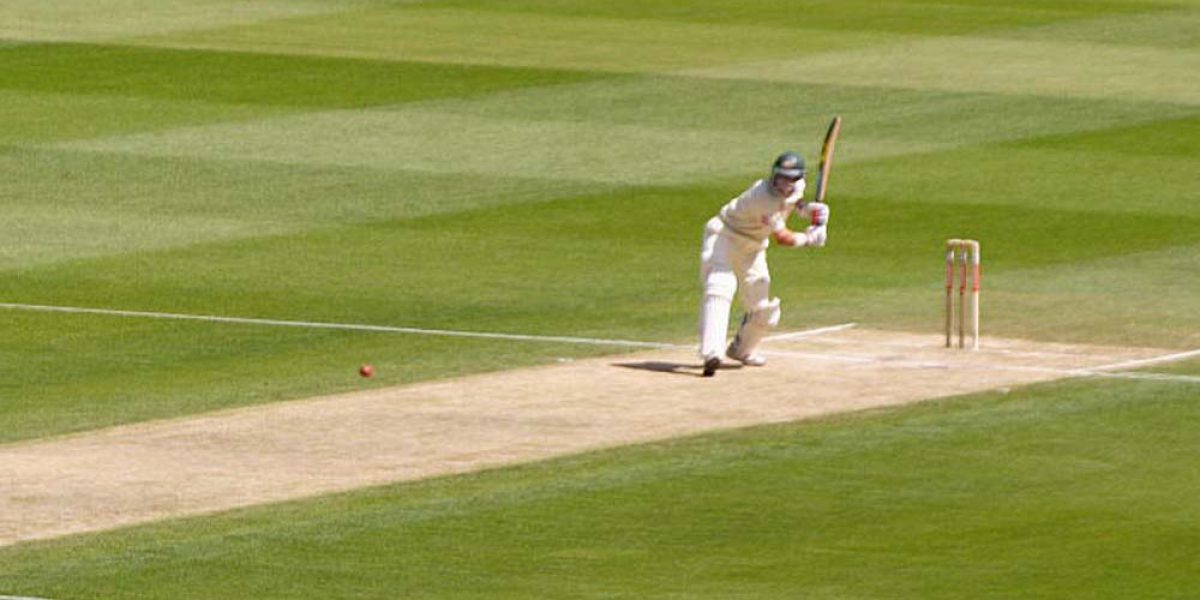Thailand: Bowled over by Sunday cricket
26 June 2013|Ian Calder

Bangkok, 26 June 2013 – In May 2013, JRS Thailand’s Urban Refugee Programme organised a cricket team to enter a cricket tournament spanning six Sundays. The twelve teams in the tournament are composed primarily of players from Pakistan, Bangladesh, India, and Sri Lanka – most of who are long-time residents in Thailand. This is the first time that urban refugee sports players have participated as a team in a mainstream Bangkok sporting event.
In South Asian countries, the enthusiasm with which the game of cricket is played and followed avidly by spectators borders on religious fervour. The passion and dedication exhibited in the Bangkok tournament during the 16 ‘social’ matches was no exception.
For one of the teams, just the chance to play their beloved game is a special privilege. A team of a dozen Pakistani asylum seekers are euphoric over the matches, as it allows them a brief interlude away from the worries and frustration that plagues their daily lives.
In constant fear of being arrested and detained, asylum seekers and refugees in Bangkok are legally barred from working and instead must stay at home with their families, waiting for their asylum claims to be processed by the UN Refugee Agency before they can eventually be resettled in a third country.
But with event coordination assistance from JRS Thailand Urban Refugee Programme for the past two years, asylum seekers and refugees in Bangkok have periodically been able to play the game they love.
“In Pakistan you don’t have to walk far to see a game of cricket being played on the street- it’s in our blood. Here in Thailand it is very different,” noted Aban, one of the cricket players.
Many of the asylum seekers involved in the Sunday afternoon cricket tournament were Ahmadi Muslims from Pakistan. Ahmadis are a small religious sect, making up roughly 4 percent of the total Pakistani population, according to local news sources.
Discriminatory legislation and rising sectarian violence against Ahmadis due to different theological beliefs based in Islam have created a climate of fear in Ahmadi communities who frequently suffer persecution by Pakistani authorities.
“For Ahmadis to be able to vote in Pakistani general elections they must renounce their beliefs and convert to ‘true Islam’,” said Aban.
Since being an Ahmadi Muslim was declared a “criminal offense” in Pakistan in the 1980s, it is increasingly difficult for the two to four million strong Ahmadi population residing there to continue to practice their faith.
Faced with increasing violence directed against them, thousands of Ahmadis have fled the country and are seeking asylum through the UNHCR, in countries such as Thailand.
This process can take up to three years, as most Ahmadis have been living ‘temporarily’ in Bangkok for between two to four years, and remain uncertain as to when they will finally be accepted by a resettlement country. Unable to work for fear of arrest is a frustrating situation for those who were previously self-sufficient heads of household.
Hopes for resettlement
For Hussein, a verified refugee, the long wait is almost over, as he and his family have been accepted for resettlement by the Netherlands, and will move there within the next few months.
“I have started to take Dutch courses now because they require refugees to be good at it, otherwise we cannot work,” said Hussein. Before he arrived in Thailand Hussein did not speak English but after four years of waiting and with the assistance of JRS Thailand’s URP team, he has achieved a remarkable level of fluency.
“When you cannot work you must do something constructive with your life, otherwise you get very frustrated with the situation,” he explained.
However, for most of the players and their families the long wait is far from over. In its Projected Global Resettlement Needs 2013 document, UNHCR estimates that approximately 181,000 refugees worldwide will be in need of resettlement in 2013.
Despite an increase in the number of countries offering resettlement programmes to 26 in 2013 from 21 in 2012, “…unless the total number of resettlement places, which currently stands at 81,000, increases signi?cantly, more than half of the refugees in need of resettlement in 2013 will be left without any solution in sight.”
This includes between one to two thousand urban refugees in Bangkok, Thailand.
At least some of these patient people now have the opportunity to play the sport they love in a safe environment. “It is such a pleasure to play cricket with my people. It continues to give us joy even as we get older and our bodies disagree with us,”said Mahmood with a grin.
“When we finally move on to a safe country we will be able to play the game with our children too, without fear.”
Ian Calder, JRS Thailand Volunteer


